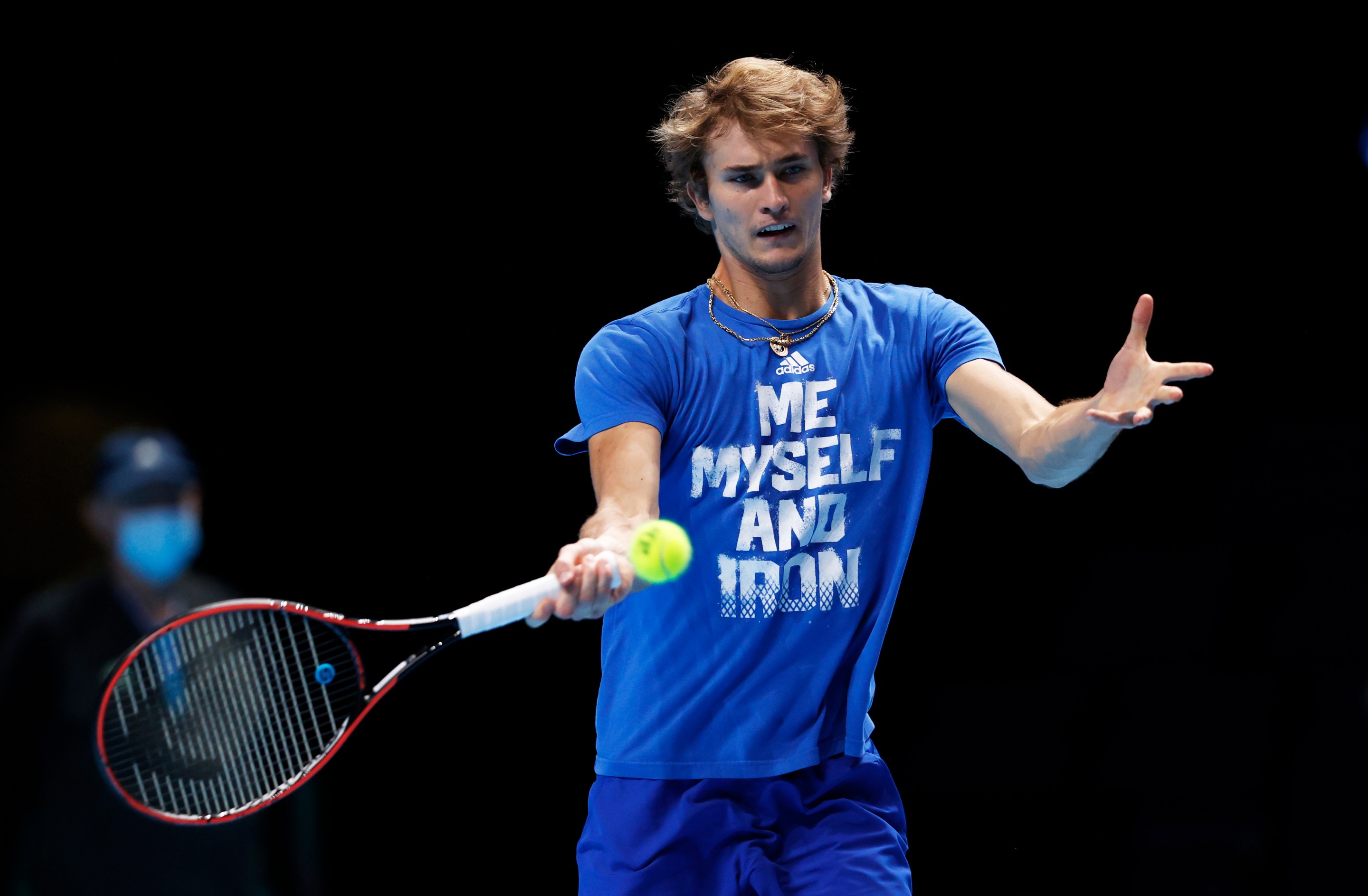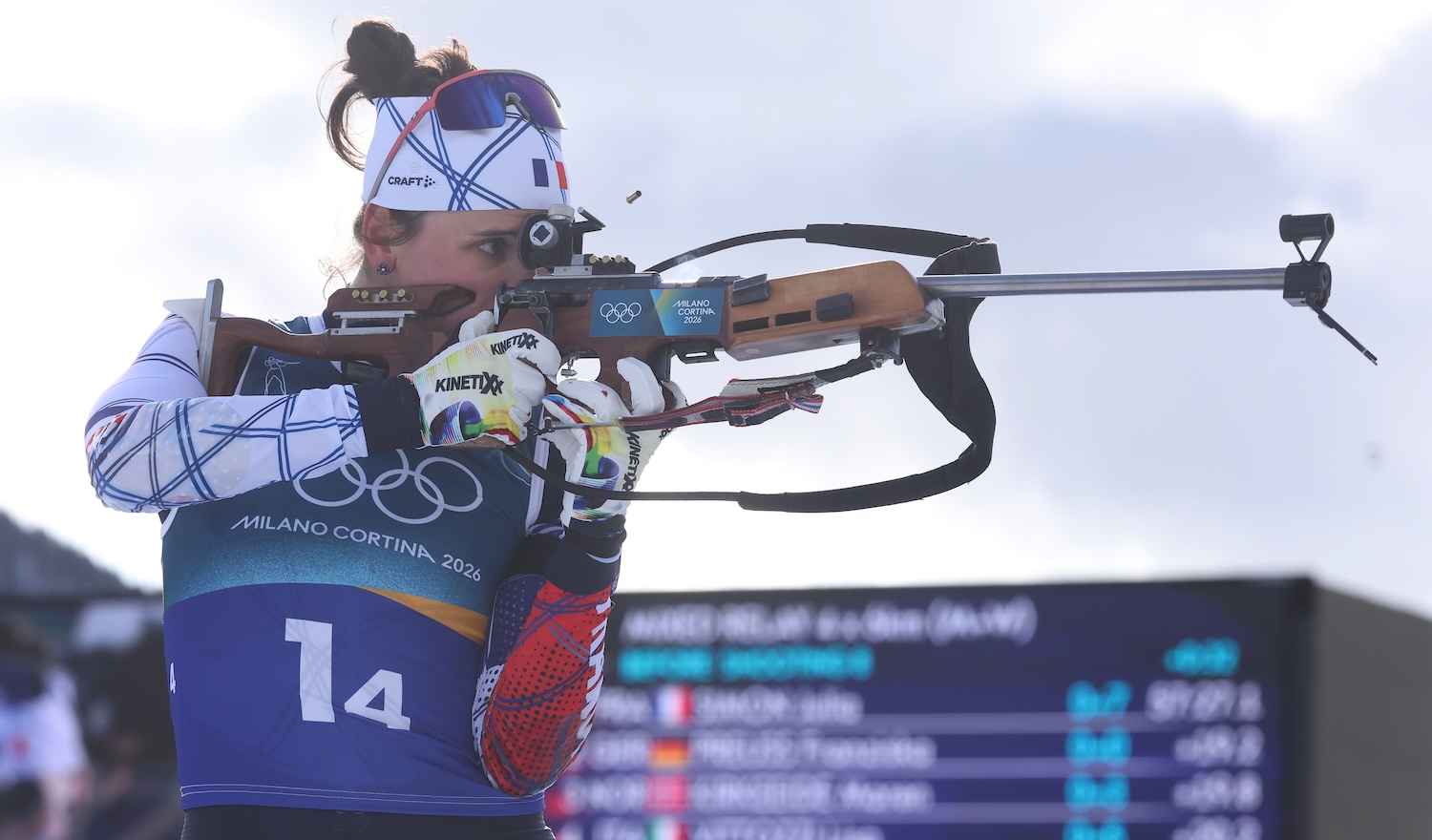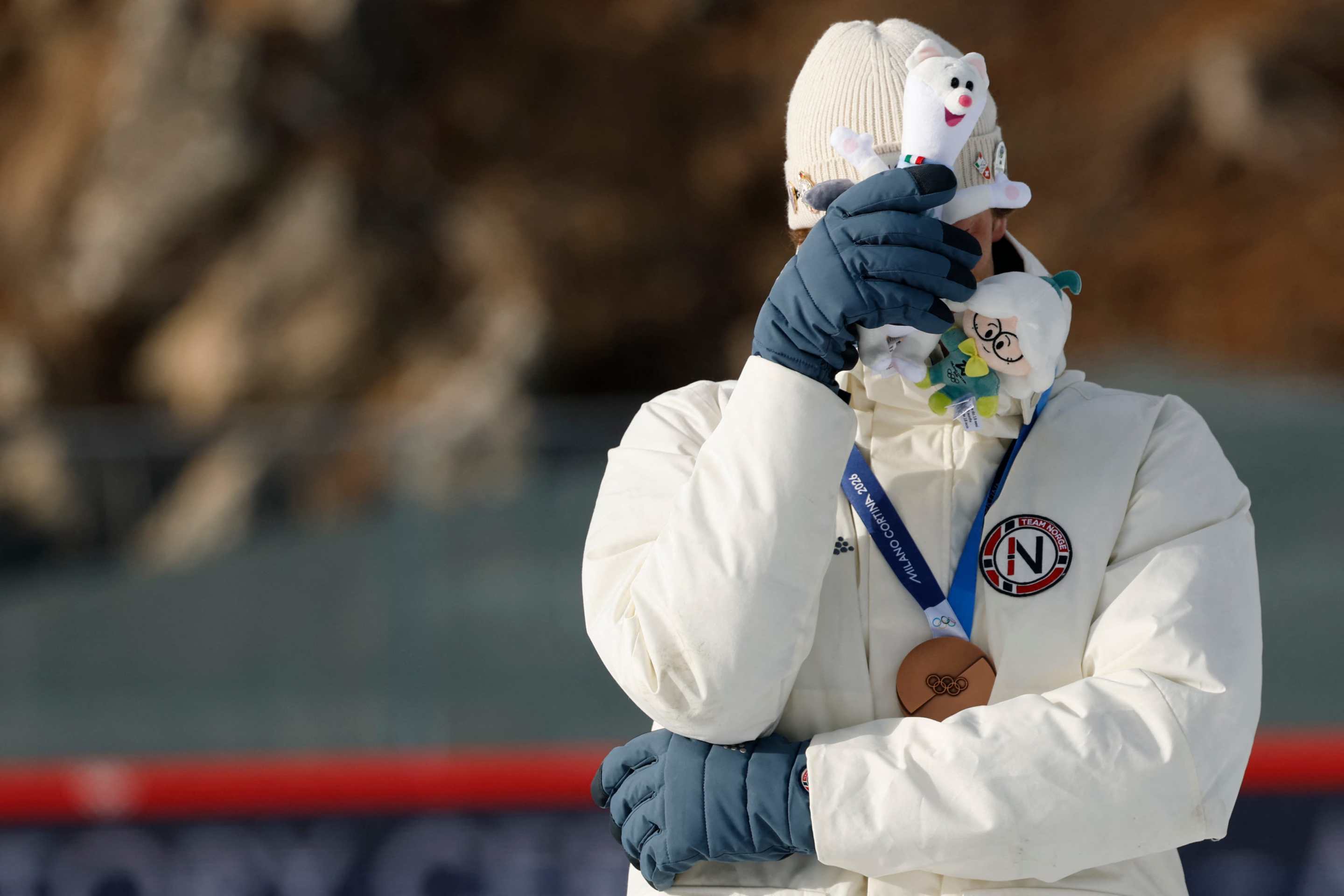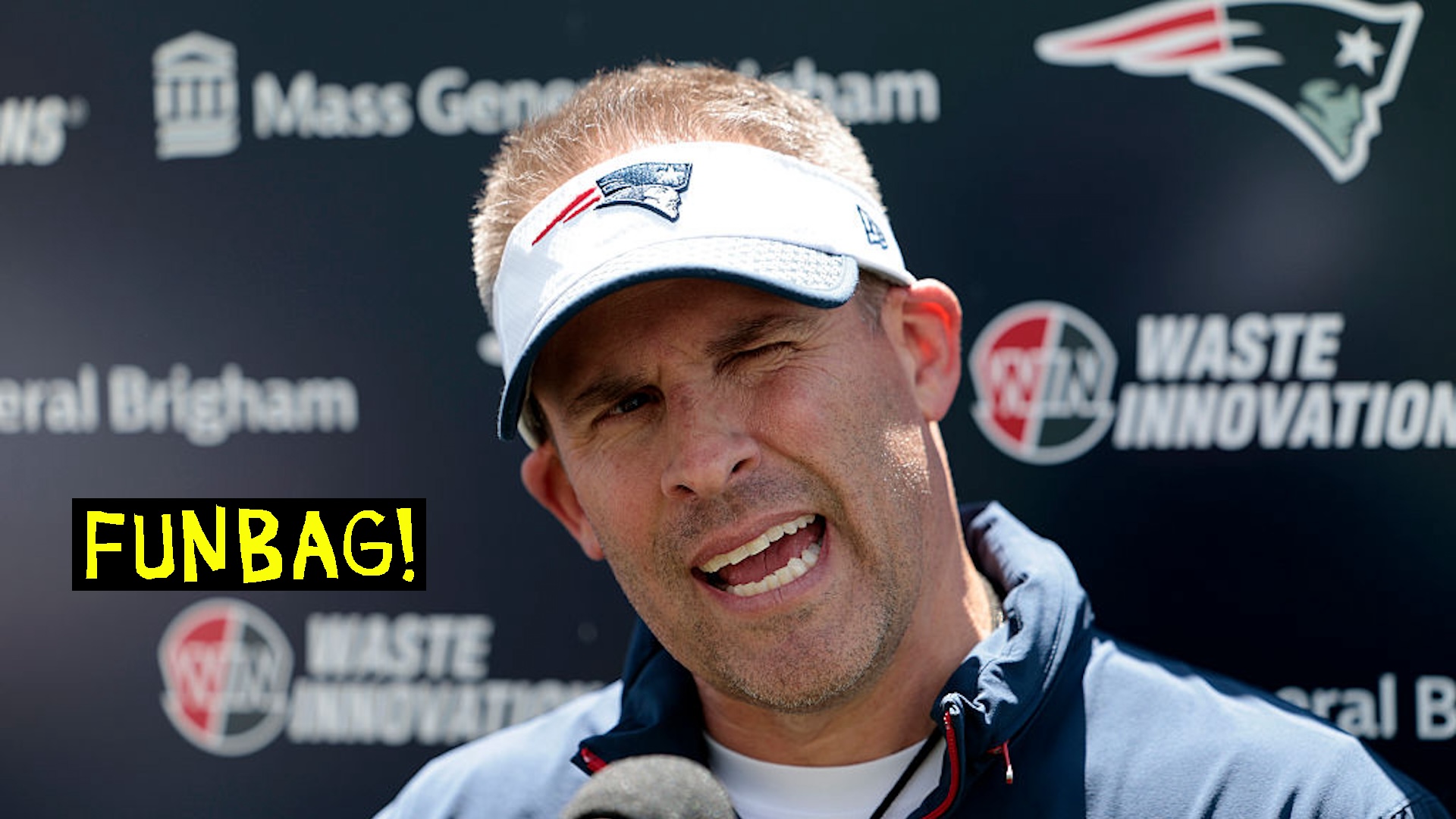On Oct. 28, world No. 7 tennis player Alexander Zverev was accused of physical abuse in an Instagram post by his ex-girlfriend Olga Sharypova. On Nov. 5, Racquet magazine published a long interview with Sharypova, detailing a pattern of emotional and physical intimate-partner violence.
Sharypova described fleeing a hotel in New York City after Zverev tried to smother her with a pillow in 2019; she intentionally injected herself with insulin after Zverev punched her later that year because, she said, "I just wanted to leave in some way, because I can’t stand it anymore." She told Racquet's Ben Rothenberg that she did not want to press criminal or civil charges. What she wanted was to show other people in similar situations that it was possible to survive. "I just want to say the truth," she said.
After Sharypova's Instagram post, Zverev shared a statement in which he expressed "regret" that she had made "unfounded accusations." When Sharypova provided more specific details in her interview, a crisis management specialist from Zverev's team pointed Racquet to that previous statement. The men's tennis tour, or ATP, pointed to a vague passage in its rulebook that says players must "refrain from engaging in conduct contrary to the integrity of the game of tennis."
Meanwhile, as fans wondered and commentators studiously avoided the subject, Zverev just kept playing tennis, and the tour continued promoting its high-profile young star. Zverev finished as runner-up at the Paris Masters on Nov. 8, and concluded the usual on-court victory speech with a passage so tonally jarring it should be watched in full:
I know that there is going to be a lot of people that right now are trying to wipe a smile off my face. But under this mask I'm smiling brightly. I feel incredible on court, I have the people that I love around me. I am probably going to be a father very soon, so everything is great in my life. The people who are trying can keep trying, but I'm still smiling under this mask even though you can't see.
Alexander Zverev
This surreal, triumphing-over-the-haters sentiment wafted in the air for a week until this past Friday, when Zverev fielded questions before the ATP Finals in London. Asked if he felt his image had been damaged by Sharypova's allegations—which is itself an extremely cynical way to think about this situation—Zverev read a sizable chunk of his answer off a phone in his lap. "We had our ups and downs, but the way our relationship was described in the public is not how it was," he said. "That’s not who I am, that’s not how I was raised by my parents. That’s not just simply who I am as a person. It makes me sad that the impact of such false accusations can have on the sport, on the outside world, on myself as well. I truly apologize that the focus has shifted away from the sport. We all love playing tennis, that’s what we’re here to do, that's what we're here to be focusing on."
Not long after, the ATP finally released a statement of its own, stashed away for late on a Friday:
The ATP fully condemns any form of violence or abuse. We expect all members of the Tour to do the same, and to refrain from any conduct that is violent, abusive, or puts others at risk.In circumstances where allegations of violence or abuse are made against any member of the Tour, legal authorities investigate and due process is applied, we then review the outcome and decide the appropriate course of action. Otherwise, we are unable to comment further on specific allegations.
Essentially, the tour will lift a finger once the criminal justice system does. But which criminal justice system? In a decentralized sport that involves independent contractors from all over the world competing in a new country every week, that means relying on the rigor of local laws and authorities wherever these incidents might occur. It doesn't take a legal scholar to know that these norms and structures vary widely, and that accusations of intimate-partner violence might be handled differently in Russia than in Argentina or the United Arab Emirates. Whether the ATP's punt meets the standards of conscientious fans or players is another question, but the tour is probably safe in assuming that this path won't cost them any money, neither in ticket sales nor in legal fees.
Sharypova has chosen not to go to law enforcement, so there will be no hypothetical due process that would spur the ATP into its hypothetical review. Tennis, which is archaic on so many fronts, lags only a few years behind on this one. Only halfway through the last decade did major North American leagues begin conducting independent investigations into misconduct outside of the workplace.
"It takes a lot of resources, a lot of education. I can't really say that we're totally equipped for it. We are a sports league," said Dan Halem, deputy commissioner and chief legal officer of MLB in 2019, speaking about how the league ramped up its scrutiny on intimate-partner violence. MLB has imposed its own penalties even in instances where the players were cleared of criminal wrongdoing. An NBA executive told Sports Illustrated that an athlete in their league facing similar accusations to Zverev's would be provisionally suspended with pay, pending the outcome of an investigation.
Whether domestic violence policies like MLB's actually keep people safer remains murky five years out, as our own Diana Moskovitz has explored. What is clear is that these policies were devised by leagues that felt the heat of public scrutiny, figured they had to do something, and pushed these rules through collective bargaining with the players' unions. Can that kind of heat even be sustained in the world of tennis?
Will the scrutiny come from its large but diffuse fandom, distributed across dozens of nations and languages? Or will it come from within? Words of support for Sharypova have been scarce from players on either tour, and one axiom of the professional tennis world is that countless conflicts of interest will always shield those in its inner circles. One relevant example: Sharypova described a suicide attempt, which required an event official to intervene, at a hotel room during the Laver Cup. That's an event owned by Team8—the sports management company that Zverev signed with in August 2019, a month before the incident took place.
The superstar-in-waiting will answer a few difficult questions, deliver the occasional comic-book villain speech, and ride out the temporary PR crisis. This too will pass, because tennis will let it. Against that backdrop, it comes as no surprise that the ATP can effectively throw up its hands and echo what Zverev read off his phone: "We all love playing tennis, and that's what we're here to do"—nothing more, nothing less.






